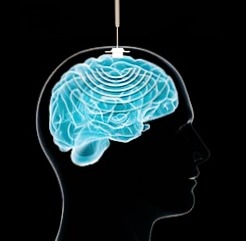Huang's Law and Moore's Law
I learned about Gordon Moore's 1965 prediction about 10 years after he proposed it. He said that by paying attention to an emerging trend, he extrapolated that computing would dramatically increase in power, and decrease in relative cost, at an exponential pace. His idea is known as Moore’s Law. Moore's law sort of flips Murphy's law by saying that everything gets better.

Moore's law is the observation that the number of transistors in a dense integrated circuit (IC) doubles about every two years. (Originally, Moore said it would happen every year but he revised it in 1975 when I was introduced to it to say that it would happen every two years.)
Though the cost of computer power for consumers falls, the cost for chip producers rises. The R&D, manufacturing, and testing costs keep increasing with each new generation of chips. And so, Moore's second law (also called Rock's law) was formulated saying that the capital cost of a semiconductor fabrication also increases exponentially over time. This extrapolation says that the cost of a semiconductor chip fabrication plant doubles every four years.
Huang's Law is new to me. Up front, I will say that this newer "law" is not without questions about its validity. It is based on the observation that advancements in graphics processing units (GPU) are growing at a rate much faster than with traditional central processing units (CPU).
This set Huang's Law as being in contrast to Moore's law. Huang's law states that the performance of GPUs will more than double every two years. The observation was made by Jensen Huang, CEO of Nvidia, in 2018. His observation set up a kind of Moore versus Huang. He based it on Nvidia’s own GPUs which he said were "25 times faster than five years ago." Moore's law would have expected only a ten-fold increase.
Huang saw synergy between the "entire stack" of hardware, software and artificial intelligence and not just chips as making his new law possible.
If you are not in the business of producing hardware and software, how do these "laws" affect you as an educator or consumer? They highlight the rapid change in information processing technologies. The positive growth in chip complexity and reduction in manufacturing costs would mean that technological advances can occur. Those advances are then factors in economic, organizational, and social change.
When I started teaching computers were not in classrooms. They were only in labs. The teachers who used them were usually math teachers. It took several years for other disciplines to use them and that led to teachers wanting a computer in their classroom. Add 20 years to that and the idea of students having their own computer (first in higher ed and about a decade later in K-12) became a reasonable expectation. During the past two years of pandemic-driven virtual learning, the 1:1 ratio of student:computer became much closer to being ubiquitous.
Further Reading
investopedia.com/terms/m/mooreslaw.asp
synopsys.com/glossary/what-is-moores-law.html
intel.com/content/www/us/en/silicon-innovations/moores-law-technology.html


